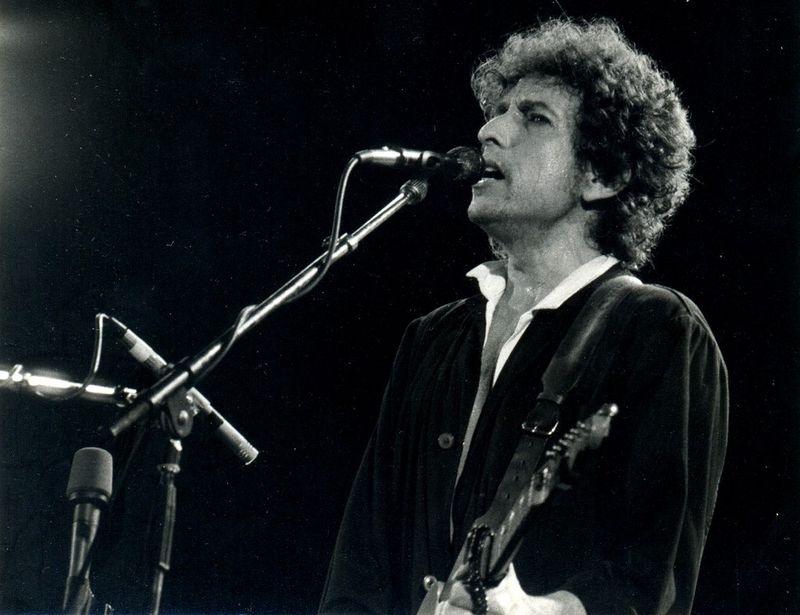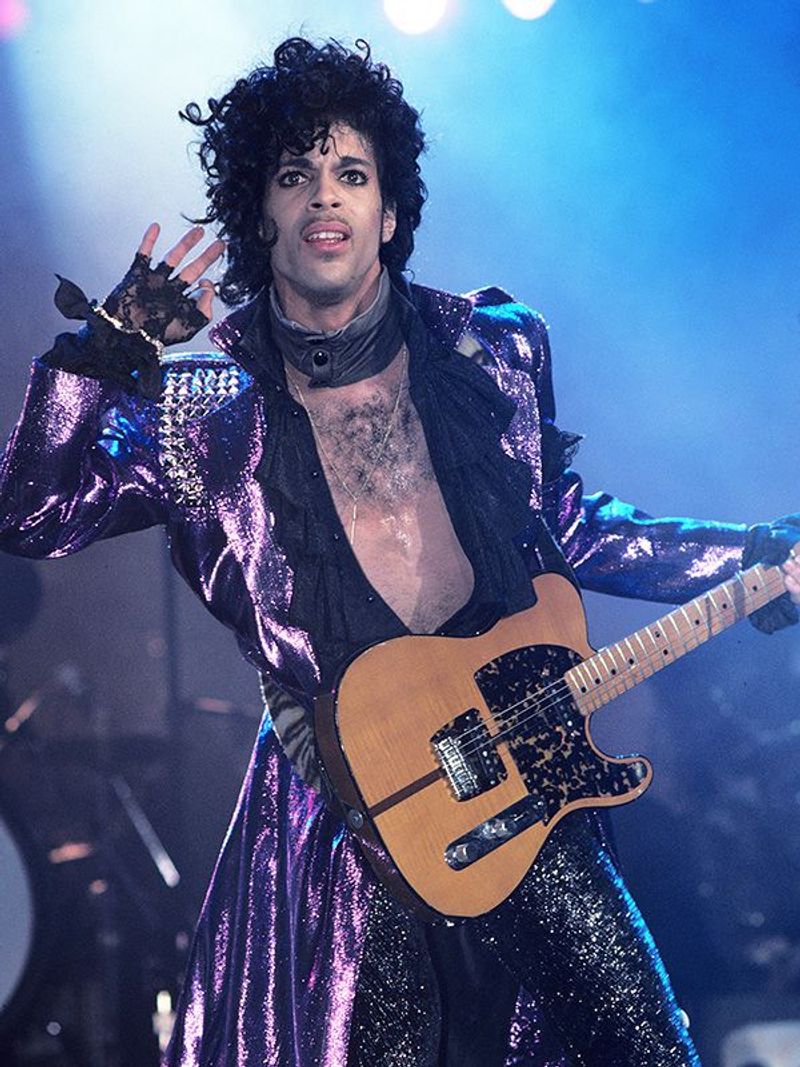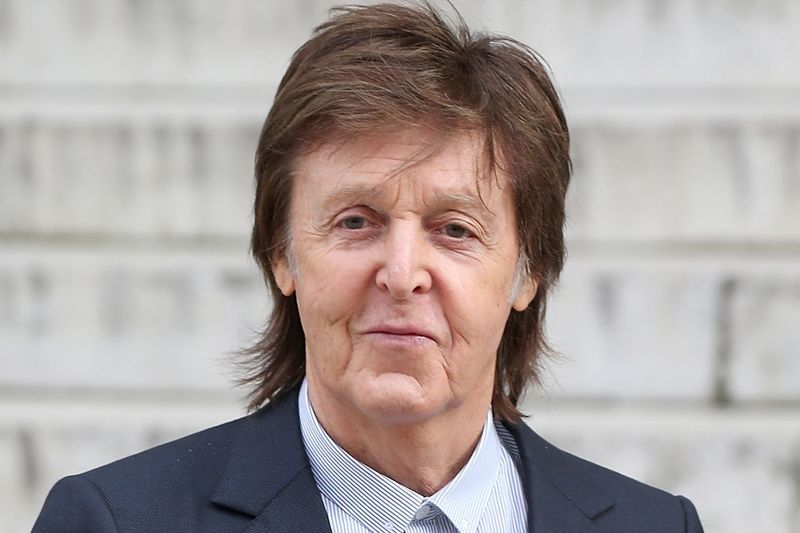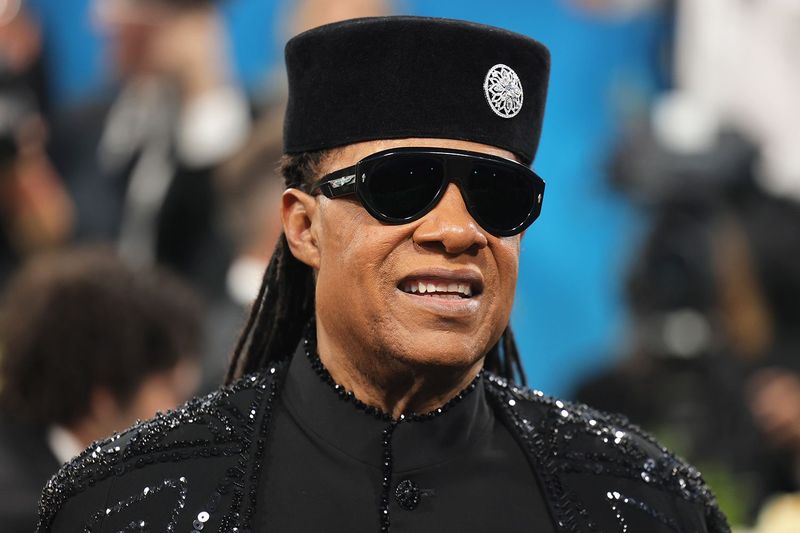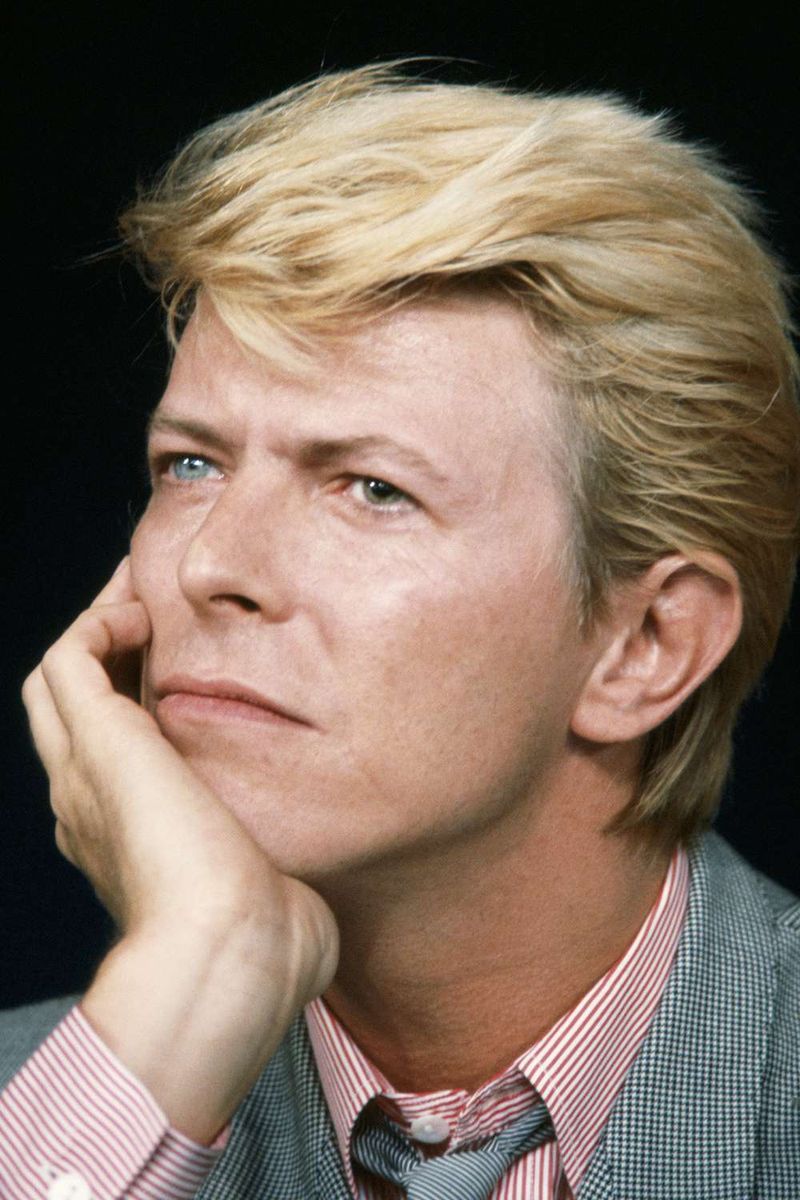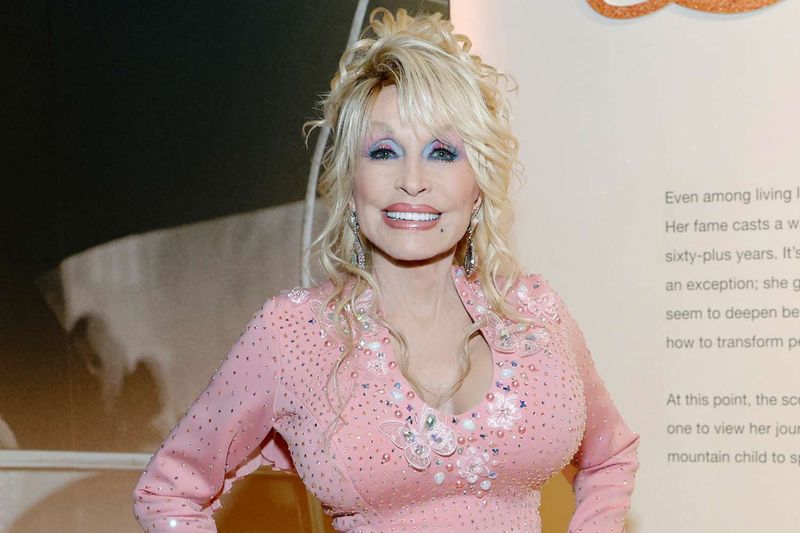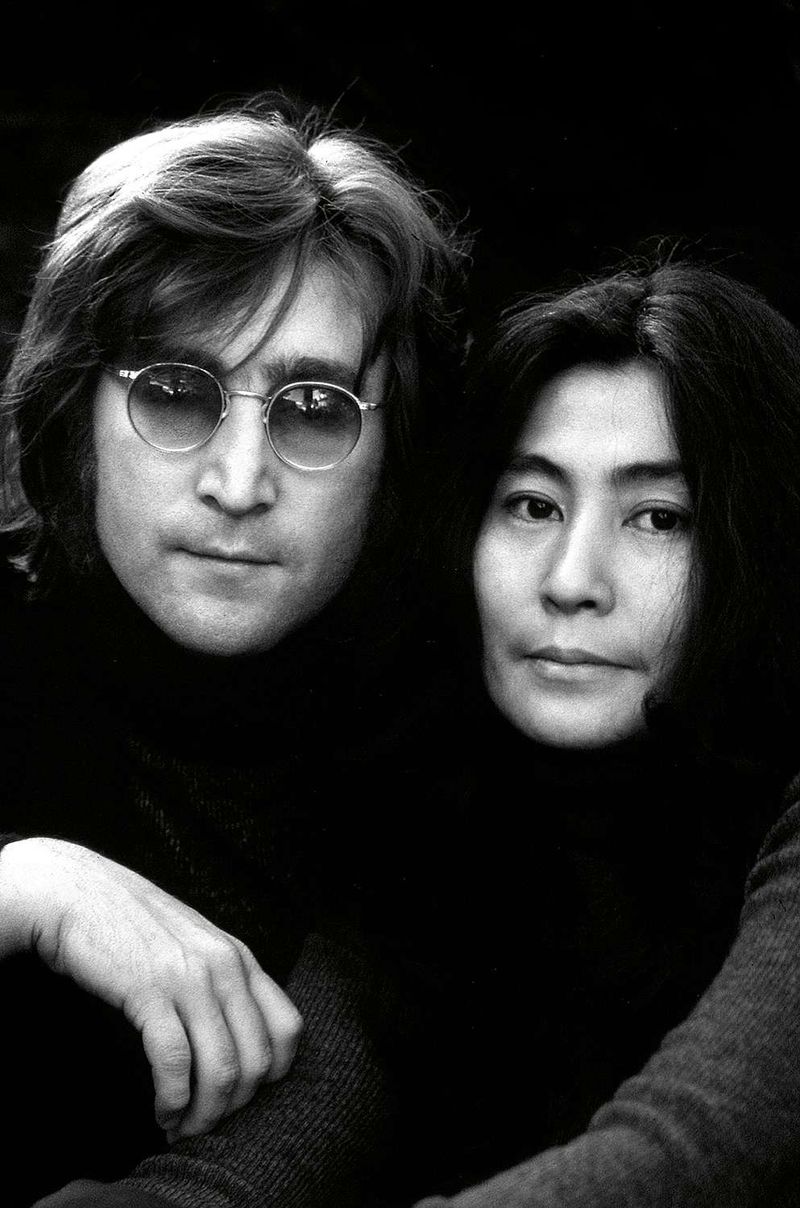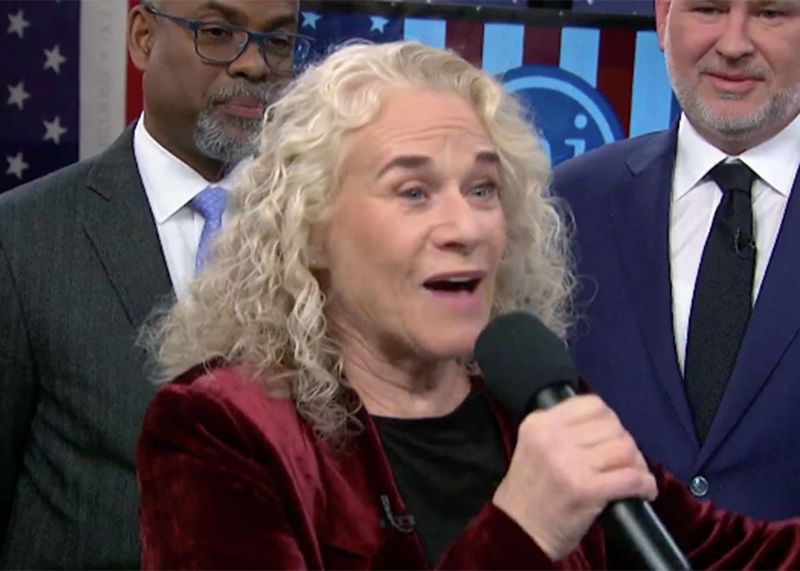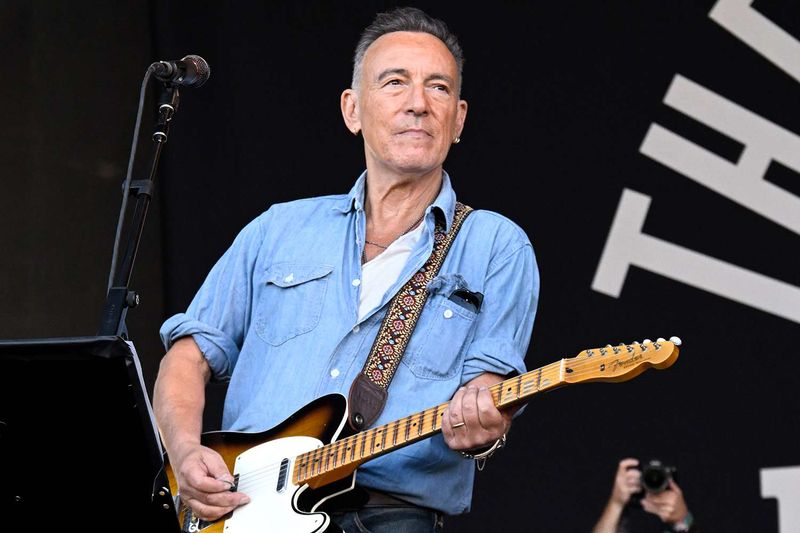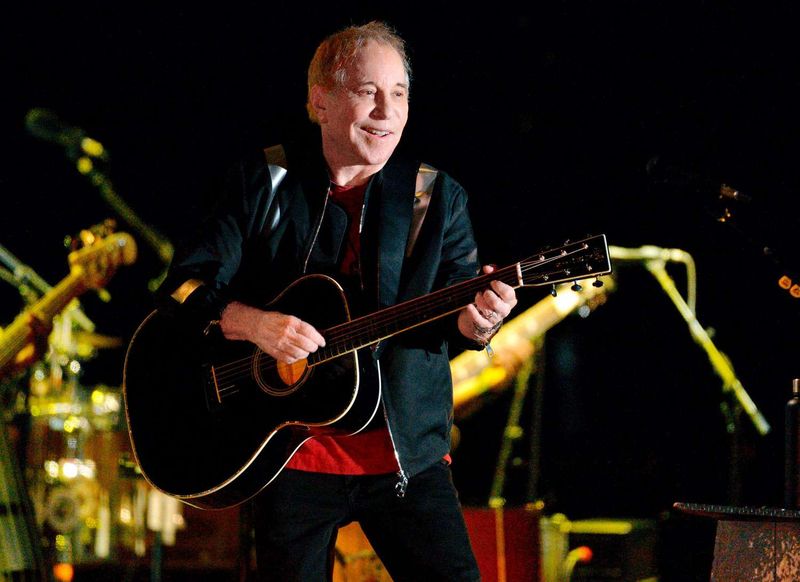Music history is filled with talented artists who not only performed but also wrote the songs that defined generations. These songwriting musicians bring a special authenticity to their work, sharing their personal stories and emotions directly with fans. From rock legends to pop stars, these 13 musicians stand out for their ability to craft lyrics and melodies that have become the soundtrack to our lives.
1. Bob Dylan: The Poet of Folk Rock
Armed with just a guitar and harmonica, Bob Dylan revolutionized songwriting in the 1960s. His lyrics transformed popular music from simple love songs into poetic expressions about social issues, politics, and philosophy.
Dylan’s songwriting earned him a Nobel Prize in Literature in 2016, the first musician to receive this honor. His classics like “Blowin’ in the Wind” and “The Times They Are A-Changin'” became anthems for civil rights and anti-war movements.
What makes Dylan extraordinary is how he constantly reinvented his style throughout six decades, influencing countless artists across genres while maintaining his distinctive voice as a songwriter.
2. Joni Mitchell: The Painterly Songwriter
Unlike conventional musicians of her era, Joni Mitchell created her own guitar tunings to match the melodies in her head. This innovative approach helped her craft songs with complex emotional landscapes that still feel deeply personal decades later.
Her album “Blue” (1971) is widely considered one of the greatest songwriting achievements ever. Mitchell didn’t just write songs—she painted with words, describing her experiences with brutal honesty and poetic grace.
Beyond folk music, she fearlessly explored jazz and experimental sounds. Her influence stretches across generations, with artists from Prince to Taylor Swift citing her as inspiration for their own songwriting journeys.
3. Prince: The Purple Musical Genius
Few artists mastered as many instruments as Prince did while creating a completely unique sound. At just 19, he signed a record deal that gave him total creative control—something unheard of for a new artist—because his songwriting talent was that obvious.
Prince wrote hit songs not just for himself but for others too. Sinead O’Connor’s “Nothing Compares 2 U” and The Bangles’ “Manic Monday” came from his pen. His home studio, Paisley Park, became legendary as the place where he could record entire songs alone, playing every instrument himself.
His catalog spans funk, rock, R&B, pop, and soul, showcasing his ability to cross musical boundaries effortlessly.
4. Paul McCartney: The Melodic Beatle
From humble Liverpool beginnings, Paul McCartney’s natural gift for melody helped create the most successful songwriting partnership in history with John Lennon. What’s remarkable is that neither Beatle could read or write music notation—they simply created by ear and memory.
McCartney’s bass playing revolutionized how the instrument was used in pop music, but it’s his songwriting versatility that truly amazes. “Yesterday” remains one of the most covered songs ever written, while “Hey Jude” showcases his ability to craft anthems that bring people together.
Even after the Beatles, he continued writing hits across six decades, proving his songwriting wasn’t dependent on any single collaboration.
5. Stevie Wonder: The Keyboard Prodigy
“Signed, Sealed, Delivered” to Motown Records at just 11 years old, Stevie Wonder grew from child star to songwriting legend. Blind since infancy, Wonder developed extraordinary musical abilities, often playing every instrument on his recordings.
His creative peak in the 1970s produced masterpieces like “Songs in the Key of Life” and “Innervisions.” Wonder pioneered the use of synthesizers and electronic instruments in soul music, creating sounds nobody had heard before.
His songs blend complex musical structures with accessible melodies that connect with listeners worldwide. Wonder’s lyrics tackle everything from romantic love to racial injustice, all delivered with his signature vocal style and harmonica flourishes.
6. Taylor Swift: The Narrative Mastermind
Starting as a teenage country songwriter, Taylor Swift turned personal experiences into universal stories that resonated with millions. Her early song “Tim McGraw” demonstrated her gift for narrative detail and emotional honesty that would become her trademark.
Swift fought for creative control throughout her career, famously re-recording her earlier albums to own her artistic work. Her songwriting evolved from country to pop to alternative folk, showing remarkable versatility while maintaining her distinctive voice.
What sets Swift apart is her ability to create entire worlds within three-minute songs. Her lyrics capture specific moments with such precision that listeners feel they’re experiencing their own memories, not someone else’s.
7. David Bowie: The Chameleon Composer
The man who fell to Earth created songs that seemed to come from another planet entirely. David Bowie’s songwriting constantly reinvented itself through characters like Ziggy Stardust and the Thin White Duke, each with their own musical universe.
Bowie’s genius lay in blending avant-garde ideas with catchy melodies that ordinary people could enjoy. His collaboration with producer Tony Visconti helped create sonic landscapes that matched his boundary-pushing lyrics about alienation, fame, and identity.
Albums like “Hunky Dory” showcase his gift for combining intellectual concepts with emotional punch. Even his final album “Blackstar,” released days before his death, proved Bowie was pushing songwriting boundaries right until the end.
8. Dolly Parton: The Country Storyteller
Growing up in a one-room cabin in Tennessee, Dolly Parton started writing songs on a homemade guitar before she could even read music. Her composition “I Will Always Love You” became a hit twice—once for herself and later for Whitney Houston—showing how her songwriting transcends genres.
Parton has written over 3,000 songs, many drawing from her hardscrabble childhood. “Coat of Many Colors” tells the true story of a coat her mother made from rags, turning poverty into a lesson about dignity and love.
Her secret to great songwriting? Dolly says she’s “just a medium” for stories that need telling. This humble approach has produced some of country music’s most enduring classics about ordinary people’s struggles and triumphs.
9. John Lennon: The Revolutionary Wordsmith
John Lennon transformed from writing simple love songs to creating music that challenged society itself. His post-Beatles compositions like “Imagine” and “Give Peace a Chance” became anthems for peace movements worldwide.
Lennon’s songwriting often exposed his vulnerabilities and inner demons. “Help!” wasn’t just a catchy title but a genuine cry during a difficult period. His collaboration with McCartney created magic through their contrasting styles—Paul’s optimistic melodies balanced John’s rawer emotional approach.
What made Lennon special was his willingness to evolve publicly through his songs. From the playful wordplay of “I Am the Walrus” to the confessional “Mother,” his writing revealed a man constantly questioning himself and the world around him.
10. Carole King: The Hitmaker Who Found Her Voice
Before becoming a performer, Carole King wrote dozens of chart-topping songs for other artists in New York’s famous Brill Building. Hits like “Will You Love Me Tomorrow” and “The Loco-Motion” came from her pen long before most people knew her name.
King’s album “Tapestry” changed everything. Released in 1971, it featured her performing her own songs with simple, heartfelt arrangements. The record stayed on the charts for six years and showed that women songwriters could connect directly with audiences without male interpreters.
Her piano-based compositions blend pop, soul, and folk influences with lyrics about everyday emotions. King proved that straightforward, honest songwriting could be revolutionary in its own quiet way.
11. Bruce Springsteen: The Working-Class Poet
“Born to Run” wasn’t just a hit song—it was Bruce Springsteen’s declaration that songwriting could capture the hopes and struggles of ordinary Americans. The Boss spent months perfecting each line, sometimes writing dozens of verses before selecting the final lyrics.
Springsteen’s songs create vivid characters like the factory workers in “The River” or the Vietnam veterans in “Born in the U.S.A.” These stories reflect his New Jersey roots while speaking to universal experiences of work, love, and the search for meaning.
His songwriting process is famously intense. Springsteen often records entire albums only to scrap them and start over, always searching for the perfect way to express complex emotions through straightforward rock music.
12. Kendrick Lamar: The Hip-Hop Wordsmith
Raised in Compton, California, Kendrick Lamar elevated rap songwriting to new literary heights. His album “To Pimp a Butterfly” uses jazz-influenced compositions to explore race, identity, and American history with unmatched complexity.
Lamar’s lyrics balance personal stories with broader social commentary. “Alright” became an anthem for the Black Lives Matter movement, while “HUMBLE.” examines fame and authenticity. His songwriting earned him a Pulitzer Prize for Music in 2018—the first non-classical or jazz artist to receive this honor.
What separates Lamar is his commitment to concept albums where each song contributes to a larger narrative. His writing process often involves creating characters and perspectives that challenge listeners to see beyond their own experiences.
13. Paul Simon: The Literary Songcraft Master
English literature major turned songwriter, Paul Simon approaches lyrics with a poet’s precision. His early work with Art Garfunkel featured literary allusions and complex imagery unusual in 1960s pop music.
Simon’s solo career showcased his gift for incorporating diverse musical styles. “Graceland” blended American folk traditions with South African township rhythms, creating something entirely new. His songwriting process often begins with rhythm rather than melody, explaining the distinctive grooves in songs like “Me and Julio Down by the Schoolyard.”
Even in his seventies, Simon continues crafting songs that examine aging, mortality, and human connection. His work demonstrates that great songwriting isn’t about youth or trends but about observing life with curiosity and compassion.
